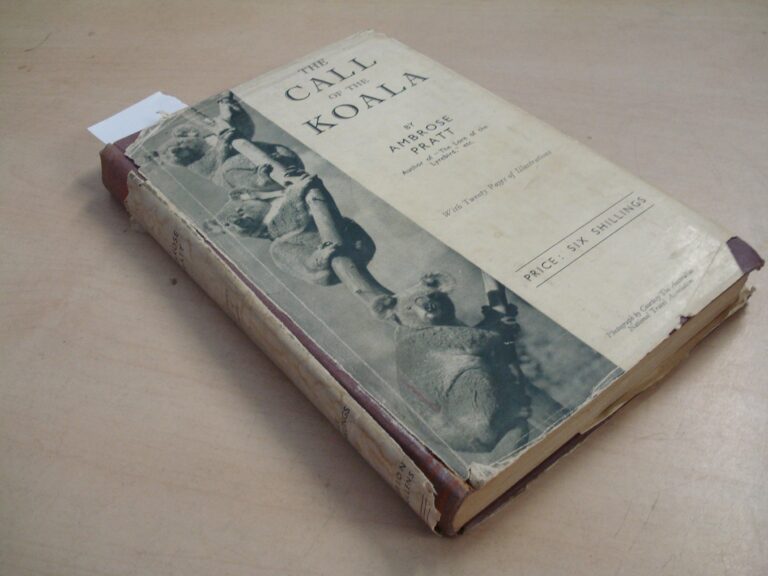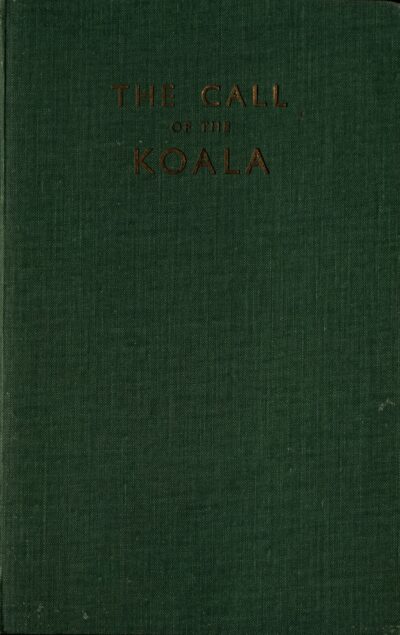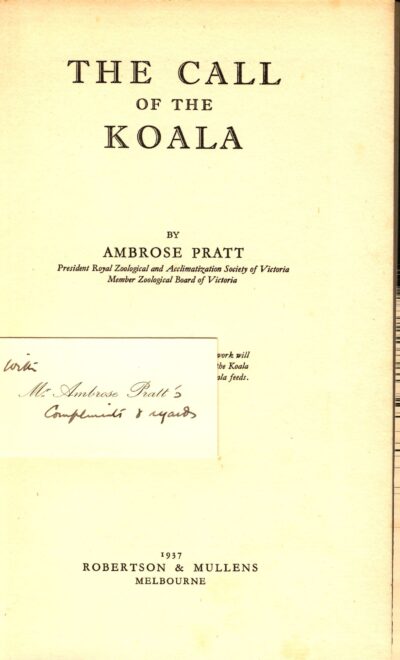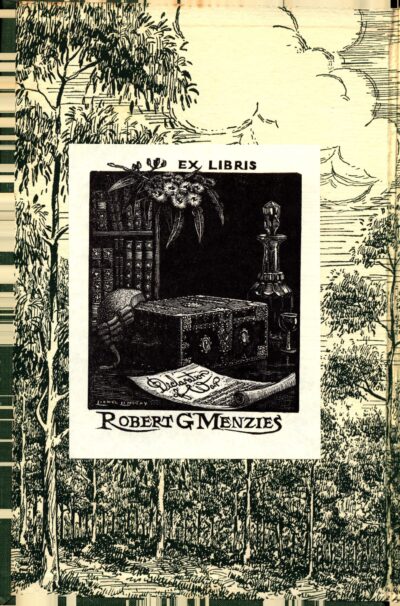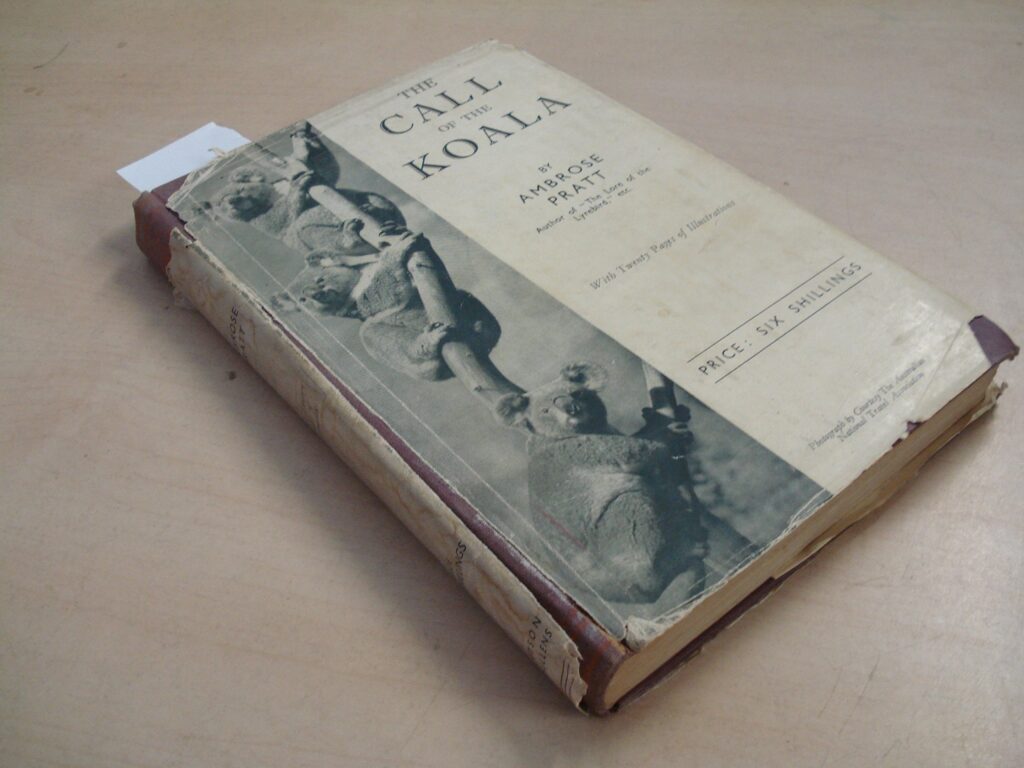Ambrose Pratt, The Call of the Koala (1937)
Ambrose Pratt was an influential Australian novelist, journalist and businessman, who made a significant impact on both sides of Australian politics. Born at Forbes in NSW as the son of a prominent medical practitioner, Pratt combined a privileged background with an attachment to radical politics and a romanticised image of the life of a drover. He was admitted as a solicitor to the Supreme Court of New South Wales, but ultimately eschewed a legal career in favour of writing, first for The Australian Worker and then as the author of number fiction books; ‘colourful adventure yarns with themes such as bushranging and larrikinism’.
After stints writing for The Bulletin and Britain’s Daily Mail, Pratt joined the Age and fell under the mentorship of its proprietor David Syme, later writing a biography of the man he dubbed The Father of Protection in Australia. In 1910 Pratt accompanied Labor Prime Minister Andrew Fisher to South Africa for the opening of the Union parliament and in 1913 he published The Real South Africa, which was remarkably sympathetic to the views and plight of the black African majority. Later in life he would become a prominent critic of the White Australia Policy, in contrast with the views he had previously expressed in the Labor press.
Pratt had been a strong advocate of tariff protection for a long time, but as he became more and more associated with Melbourne’s manufacturing class, his worldview grew gradually more conservative, particularly after Labor’s split over conscription. His most significant connection to Menzies was that both men were members of ‘the Group’, the handful of backroom dealers who engineered Joseph Lyons’s split from the Labor Party and ascension as head of Australia’s non-Labor forces. Pratt’s old Labor sympathies were quite helpful in winning over Lyons, and he even helped to draft Lyons’s resignation speech.
Pratt was a man of eclectic interests. As a child he had been attended to by a Chinese Amah, which fostered a fascination with orientalism and Buddhism, and he even wrote a play which attempted to interpret contemporary Chinese thought for an Australian audience. His other passion was for the preservation of Australian wildlife, and in 1933 he founded a League of Youth dedicated to the ‘protection and preservation of the flora and fauna of Australia’ and ‘the development of ideals of citizenship in the minds of young Australians’ (Menzies publicly endorsed this League in the Victorian Parliament). It was this instinct for nature that compelled Pratt to write The Call of the Koala, ‘the first, and for many years the only, book on the natural history of the koala’.
Its description says that ‘the purpose of the book is to interpret the immense scientific and aesthetic value of the Koala, to indicate the benefits which the scientific study has conferred on the world, and to demonstrate the measures that are necessary to ensure the Koala’s survival as a national Australian asset and a blessing to mankind.’ The book’s environmentalist message is summed up in the line ‘every “free bear” in Australia is essentially a captive bear – a captive to the cruel conditions of an unnatural new environment created by man.’ It is worth noting just how little was known about the koala at this time, and that the way in which the book helped to ensure the animal’s preservation was not limited to mere advocacy, but also developing a practical understanding of what it needed to survive.
Menzies’s copy is inscribed ‘with compliments and regards’ from the author, and was perhaps an attempt to convince the prominent politician of the importance of wildlife protection – which Menzies had already shown his sympathy for when he backed the League of Youth. The book stands as testament to Menzies’s relationship with a remarkable Australian, with whom he worked closely at one pivotal moment to alter the course of Australian political history. The two men also share another connection in that Ambrose wrote a biography of Sidney Myer, founder of the Myer department store, which was posthumously published in 1978 with a foreword by Menzies.
You might also like...
Sign up to our newsletter
Sign up for our monthly newsletter to hear the latest news and receive information about upcoming events.

